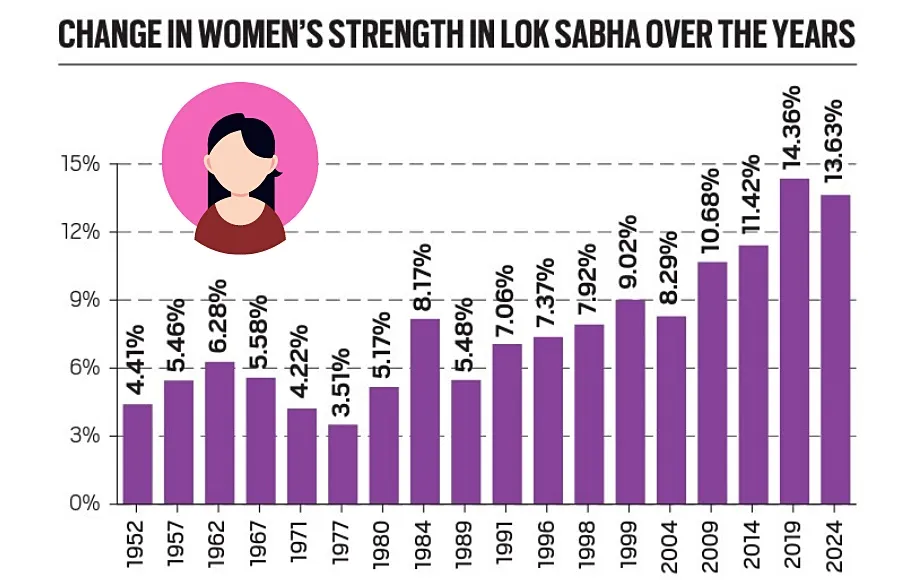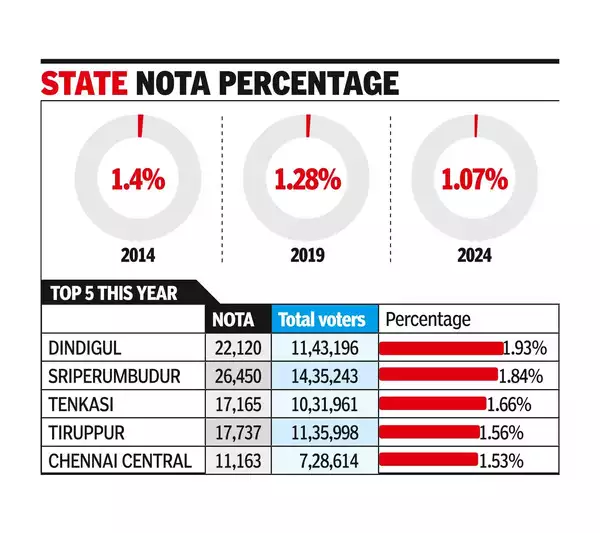Indian Polity
General Election 2024 and Coalition Government
- 06 Jun 2024
- 12 min read
For Prelims: Coalition government, Economic reforms, Federal system, Fiscal Responsibility & Budget Management (FRBM), PM Gram Sadak Yojana, Information Technology Act, 2000, Right to Education Act, Right to Information Act, Right to Food, Mahatma Gandhi National Rural Employment Guarantee Act (MGNREGA), Aadhaar, GST
For Mains: Merits and Demerits of coalition government, Challenges of coalition governments
Why in News?
Recently, for the first time since 1962, a government has returned for a third term after completing two consecutive terms spanning a decade.
- However, the result signifies the end of single-party dominance and heralds the return of a true coalition government at the Centre.
What is a Coalition Government?
- About:
- Coalition government is defined as when several political parties join hands to form a government and exercise political power based on a common agreed programme.
- Coalitions usually occur in modern parliaments when no single political party gets clear majority.
- If several parties with a majority of elected members can agree on a shared plan without compromising too much with their policies, they can form a government.
- Features Of Coalition Government:
- A coalition implies the existence of at least two parties to form government.
- Pragmatism and not ideology mark of coalition politics.
- Coalition politics is not a static but a dynamic affair as coalition players and groups dissolve and form new ones.
- A coalition government works based on a minimum programme, which may not satisfy aspirations of all the members of the coalition government.
- A coalition implies the existence of at least two parties to form government.
- Pre-poll and Post-poll Coalition:
- The pre-poll coalition is considerably advantageous because it provides a common platform for the parties to woo the electorate based on a joint manifesto.
- The post-election union is intended to enable constituents to share political power and run the government.
Recommendations of Punchhi and Sarkaria Commission on Coalition
- Punchhi Commission Recommendation: The Punchhi Commission established clear rules for how Governors should handle appointing Chief Ministers in hung assemblies. These guidelines hold true for President as well:
- The party or combination of parties which commands the wide support in the Legislative Assembly should be called upon to form the Government.
- If there is a pre-poll alliance or coalition, it should be treated as one political party and if such coalition obtains a majority, leader of such coalition shall be called by the Governor to form the Government.
- In case no party or pre-poll coalition has a clear majority, Governor should select the Chief Minister in the order preference indicated here.
- The group of parties which had pre-poll alliance commanding the largest number
- The largest single party staking a claim to form the government with the support of others
- A post-electoral coalition with all partners joining the government
- A post-electoral alliance with some parties joining the government and the remaining including independents supporting the government from outside
- The Sarkaria Commission had found that problems in Indian federalism came from a lack of consultation and dialogue between the Centre and states.
- It was found that the interstate council worked whenever regional political parties had a major role to play at the national level. This signifies the role of coalition government in which regional parties plays an important role.
Other Development in 2024 General Election
- Women:
- India has elected 74 women MPs to Lok Sabha in the 2024 general election four less than in 2019 and 52 more than in India’s first elections in 1952.
- These 74 women make just 13.63% of the elected strength of the Lower House compared to 46% of MPs in South Africa, 35% in the UK, and 29% in the US.
- Indira Gandhi has been India’s first and only woman Prime Minister.
- NOTA:
- In Indore the “None Of The Above” (NOTA) received more than 2 lakh votes.
- This is the highest-ever NOTA number for any Lok Sabha constituency ever.
- The NOTA option was introduced for the first time in the general elections in 2014.
- NOTA has no legal consequence attached to it as even if the highest number of votes in a seat are polled for NOTA, the second most successful candidate wins.
- In Haryana, NOTA has been treated as a fictional candidate.
- In Indore the “None Of The Above” (NOTA) received more than 2 lakh votes.
What are the Merits and Demerits of the Coalition Government?
- Merits:
- A coalition government brings together different parties to make decisions that are balanced and satisfy interests of various stakeholders.
- India's diverse cultures, languages, and groups make coalition governments more representative and reflective of popular opinion than single-party governments.
- Coalition politics strengthens India's federal system by being more attentive to regional needs than a single-party government.
- Demerits:
- They are unstable because disagreements on policy issues among coalition partners can cause the government to collapse.
- In a coalition government, the Prime Minister's authority is restricted as they must consult with coalition partners before making significant decisions.
- The Steering Committee, like a 'Super-Cabinet' for coalition partners, diminishes the authority of the cabinet in governing.
- Smaller parties in a coalition government might have significant influence by demanding more than their fair share of power in Parliament.
- Leaders of regional parties influence national decisions by advocating for issues specific to their regions, exerting pressure on the central government to align with their interests under the threat of coalition withdrawal.
- In a coalition government, the Council of Ministers tends to be larger due to the interests of all major parties in the coalition.
- In coalition governments, members often avoid taking responsibility for mistakes by blaming each other, thus avoiding both collective and individual accountability.
What has been the Role of Coalition Governments in Reforms?
- Historical Context:
- Since 1991, India experienced coalition governments where the leading party was far from the majority mark of 272.
- Coalition governments have implemented some of the boldest economic reforms in India’s history.
- Notable Reforms by Previous Coalition Governments:
- P V Narasimha Rao Government (1991-1996):
- Economic Liberalisation (LPG Reforms): Liberalised the economy by removing the licence-permit raj and embraced global competition.
- WTO Membership: India became a member of the World Trade Organisation, integrating more deeply into the global economy.
- Deve Gowda Government (June 1996-April 1997):
- Dream Budget: Finance Minister was known for reducing tax rates, and fostering a more favourable economic environment for taxpayers and businesses.
- Atal Bihari Vajpayee Government (March 1998-May 2004):
- Fiscal Responsibility & Budget Management (FRBM) Act: Introduced fiscal discipline by limiting government borrowing.
- Disinvestment and Infrastructure: Pushed for disinvestment of loss-making PSUs and improved rural infrastructure through schemes like the PM Gram Sadak Yojana.
- Information Technology Act, 2000: Laid the groundwork for the booming e-commerce sector in India.
- Manmohan Singh Government (2004-2014):
- Rights-Based Reforms: Various reformative measures were brought in like the Right to Education Act, the Right to Information Act, the Right to Food, and the Mahatma Gandhi National Rural Employment Guarantee Act (MG-NREGA).
- Economic Deregulation: Deregulated fuel prices, initiated direct benefit transfers, and worked on the Aadhaar and GST systems.
- P V Narasimha Rao Government (1991-1996):
Conclusion
- Despite the inherent challenges, coalition governments offer a platform for diverse voices and can foster consensus-driven policies.
- A well-functioning coalition, built on a foundation of mutual respect, strong leadership, and a commitment to national progress, can navigate the complexities of a vibrant democracy.
- Justice M N Venkatachaliah commission report has suggested the idea of a permanent coalition.
- The report suggested it would be best if all governments in India, at all tiers, mandatorily accomplish a 50-plus vote share.
- With this recommendation, Justice Venkatachaliah meant that only a government with a 50-plus % vote share would have the necessary legitimacy to govern.
|
Drishti Mains Question: Q. Discuss the challenges and implications of coalition governments in the Indian context. |
UPSC Civil Services Examination, Previous Year Question (PYQ)
Prelims:
Q. With reference to Deputy Speaker of Lok Sabha, consider the following statements: (2022)
- As per the Rules of Procedure and Conduct of Business in Lok Sabha, the election of Deputy Speaker shall be held on such date as the Speaker may fix.
- There is a mandatory provision that the election of a candidate as Deputy Speaker of Lok Sabha shall be from either the principal opposition party or the ruling party.
- The Deputy Speaker has the same power as of the Speaker when presiding over the sitting of the House and no appeal lies against his rulings.
- The well-established parliamentary practice regarding the appointment of Deputy Speaker is that the motion is moved by the Speaker and duly seconded by the Prime Minister.
Which of the statements given above are correct?
(a) 1 and 3 only
(b) 1, 2 and 3
(c) 3 and 4 only
(d) 2 and 4 only
Ans: (b)
Mains:
Q. To what extent, in your view, the Parliament is able to ensure accountability of the executive in India? (2021)
Q. How far do you think cooperation, competition and confrontation have shaped the nature of federation in India? Cite some recent examples to validate your answer. (2020)






